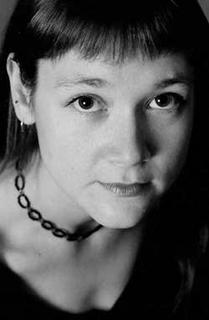 Tammy Armstrong is one of the 20 poets I selected for New American Writing, "The New Canadian Poetry" section, 2005. She's one of the younger poets in Canada most worth following.
Tammy Armstrong is one of the 20 poets I selected for New American Writing, "The New Canadian Poetry" section, 2005. She's one of the younger poets in Canada most worth following.So, as we move towards Canada Day, Eyewear is very happy to present a most apt poem of hers, below.
I recall Canadian Tire and its Monopoly-style money with great fondness.
Amaryllis Canadian Tire
Near the return and exchange desk
the sink drain blare of Cash 11, Manager to Cash 11,
bulb-split amaryllises,
petals halogen rusted, garden bulimic
stand sturdy in clay cups
while the mats at the automatic door grow streamy
with boot tracked snow, slush.
Ski coats shift sibilation
each down-plump body
maneuvering the card table
careful not to catch a leaf
above sparkle-glue bijouteries
outsized flanges and piano hinges.
Amaryllis -
dismissed amid vulcanized rubber
boxing day sale perfume -
an ostentatious widow
price shopping the discount aisle.
poem by Tammy Armstrong
Comments